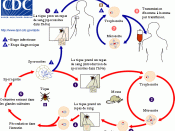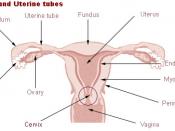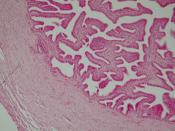BIOLOGY TERM 3
Reproduction
Asexual reproduction
÷leads to the production of offspring that are very like their parents and so carry on adaptations to the conditions they live in.
÷Does not depend on the production of specialised reproductive cells (gametes)
÷Does not depend on the chance meeting of sperm and egg, eg. Aquatic species shed their gametes into the water.
÷Does not depend on two mature individuals, one to produce sperm and the other to produce eggs, coming together at an appropriate time for the transfer of sperm.
Fission
÷of a single-celled organism is the simplest type of reproduction.
÷A cell divides across a midsection to form two equal daughter cells. Eg. Most bacteria and some unicellular algae and fungi.
Budding
÷A small part, including a nucleus produced by mitosis, pushes out from the parent cell and breaks off.
÷Occurs in yeasts.
Spores
÷Are the reproductive cells of single-celled and multicellular algae and fungi.
÷The spores of aquatic fungi and algae swim through water by using their long whip like flagella.
÷ Currents of air disperse microscopic spores of terrestrial algae and fungi. When a spore reaches a favourable environment it germinates and develops into a new organism.
Fragmentation and Regeneration
÷Fragmentation (the breaking off of parts of the parent body) followed by regeneration (the growth of detached part into a new individual) is a form of asexual reproduction that occurs in some multicellular organisms.
÷A many celled structure that is capable of growing into a whole new individual detaches from the parent, either by a special mechanism or by accident.
÷Quite frequently fragmentation is a result of damage.
÷Repair after fragmentation can become reproduction in organisms such as starfish and earthworms. Eg. Propagation of plants.
Parthenogenesis
÷is the development of an unfertilised egg into an embryo. Eg. Plants, honey...



Thanks
Thanks for posting up ur notes. Although its quite brief, it's helpful.
1 out of 1 people found this comment useful.